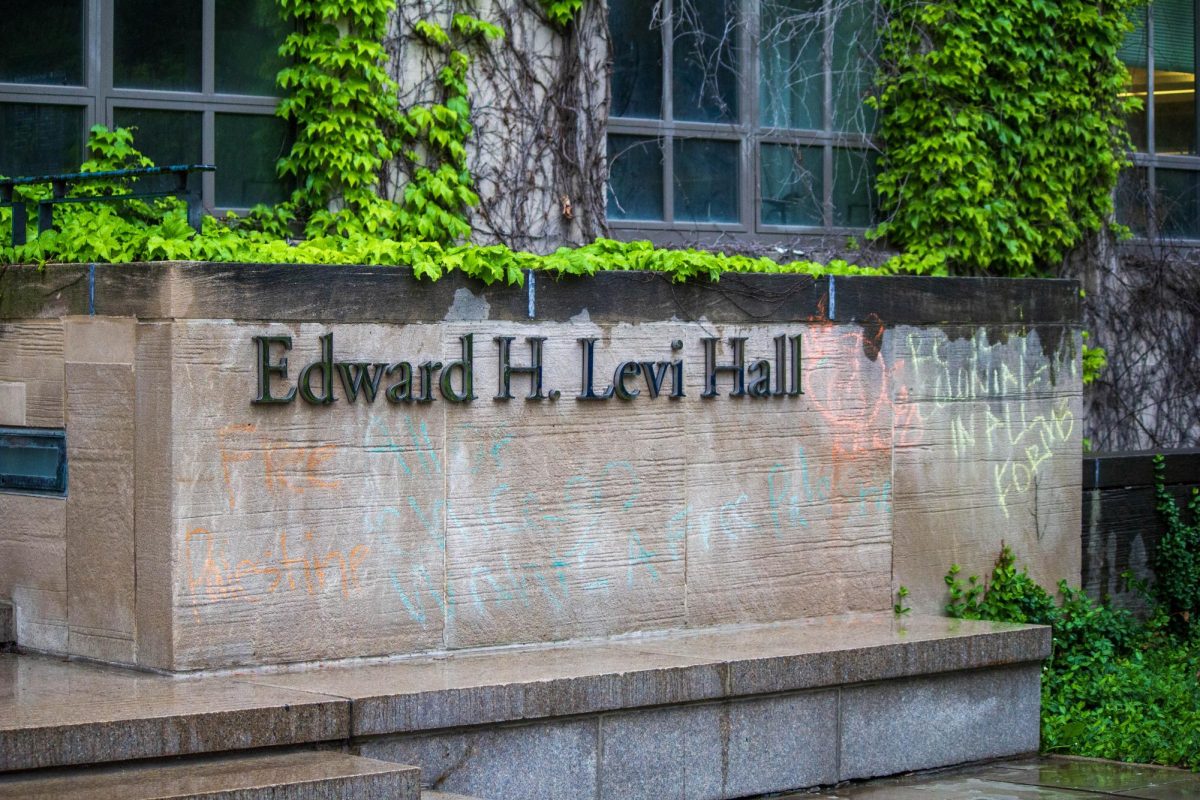
Nathaniel Rodwell-Simon
The University has determined that the pro-Palestine encampment on the main quad is substantially disrupting the functioning and safety of the University, according to an email sent to the University community by President Paul Alivisatos.
The email suggested that the University is prepared to take further action related to the encampment.
“As I wrote on Monday, out of principle we provide the greatest leeway possible for free expression, even expression of viewpoints that some find deeply offensive, even in rare cases at the expense of some policy violations—for a time,” Alivisatos wrote in the email. “But the encampment cannot continue.”
Alivisatos cited the disruption of classes, vandalism of University property, destruction of approved student installations, and the raising of the Palestinian flag on the main quad flagpole as reasons for escalating the University’s position.
“The encampment has created systematic disruption of campus. Protesters are monopolizing areas of the Main Quad at the expense of other members of our community. Clear violations of policies have only increased. Our students have issued a torrent of reports of disrupted classroom learning,” Alivisatos wrote.
Yesterday, Deans-on-Call repeatedly emphasized to the protesters that amplified sound or other loud noise is only permitted on the quad from noon to 1 p.m. and after 5 p.m. on weekdays per University policy. Despite the warnings, protesters held rallies at both 1:40 p.m. and 4 p.m.
“Left to itself, there is no end in sight, and the disruptions will continue to mount,” Alivisatos wrote. “The encampment protesters have flouted our policies rather than working within them, despite UChicago being an institution that allows for many ways to express views.”
At the same time, Alivisatos stated that the University would support “meaningful engagement on the issues that the protesters have called attention to” if protestors engaged in a way that was consistent with University principles and policies.
Alivisatos confirmed that encampment organizers had met with him and Provost Katherine Baicker on Thursday to “better understand [their] views and seek a pathway forward.” On Thursday morning the University offered to meet with protesters on the condition of ending the encampment and further violations of University policy. Organizers said they would not end the encampment.
“We met with the group designated by the protesters to listen to their demands and to search for a way to end the encampment grounded in dialogue,” Alivisatos wrote about Thursday’s meeting. “They shared genuine and powerful statements about what has brought them to the encampment.”
Protestors had also met with University administrators on Wednesday in a meeting that did not include negotiations on the state of the encampment. However, he noted that the University and demonstrators had “not yet found common ground.”
“On Monday, I stated that we would only intervene if what might have been an exercise of free expression blocks the learning or expression of others or substantially disrupts the functioning or safety of the University,” Alivisatos wrote. “Without an agreement to end the encampment, we have reached that point.”
UCUP could not be reached for comment by the time of publication.
In a statement to the Maroon, Faculty for Justice in Palestine (FJP) responded to the email.
“FJP condemns President Alivisatos’ statement in the strongest possible terms,” the statement said. “The administration has not negotiated in good faith with our students, offering them absolutely nothing in hastily arranged meetings. In light of the brutal police repression of students, faculty and staff across the country, threatening to forcefully dismantle the encampment is a serious escalation.”